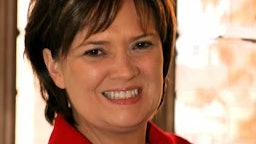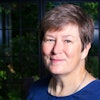A dozen higher education institutions have been selected to participate in the Equitable and Inclusive Curriculum-to-Career Models Project, according to the American Association of Colleges and Universities (AAC&U).
The two-year project — supported by a grant from Lumina Foundation — builds on campus work initiated through AAC&U’s Curriculum-to-Career Innovations Institute. It is expected to assist campuses in designing and implementing equity-centered curricular models that connect student learning to career exploration, development of professional purpose, and acquisition of transferrable skills.
 Dr. Lynn Pasquerella
Dr. Lynn Pasquerella
Ashley Finley, vice president for research and senior advisor to the president, will serve as project director.
Institutions selected for the project are Clark University, Dallas College, Gallaudet University, Lorain Community College, Loyola University Maryland, Michigan State University, Agnes Scott College, St. Edward's University, and St. Mary's College of California. The University of Alaska Anchorage, the University of Northern Colorado, and the University of Washington Tacoma round out the project participants.
While the campus models developed through the project will be embedded in curricula, the implementation strategies will be designed to foster collaboration among multiple stakeholders, including faculty, career center directors, administrators, and industry leaders.
Working in communities of practice, campus teams will utilize specific levers of institutional change, such as holistic advising, work-integrated pedagogies, and digital credentials and resources, to guide implementation strategies.
A central goal of the resulting curriculum-to-career models will be to advance equity within student outcomes, evaluation, professional learning, and partnerships.
















